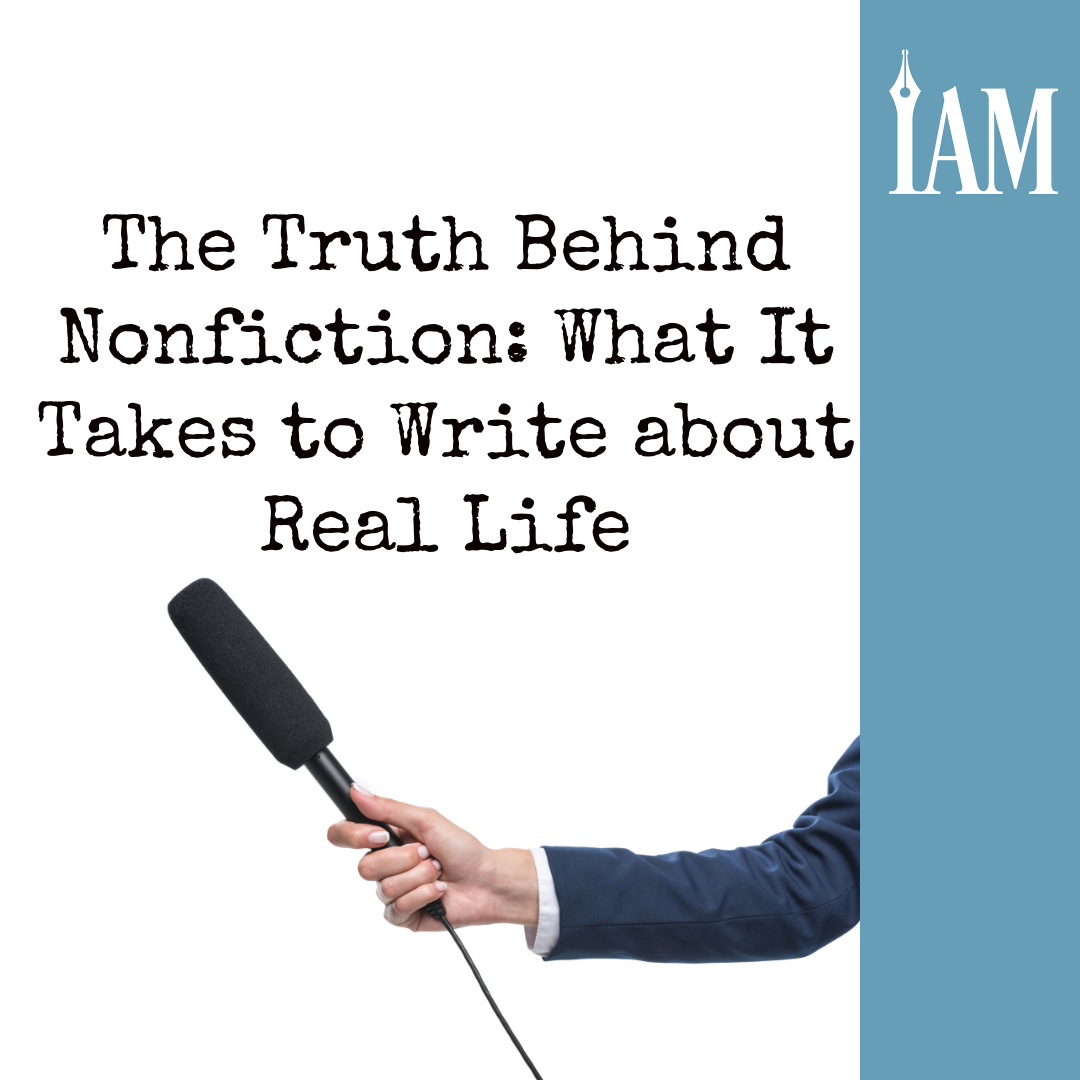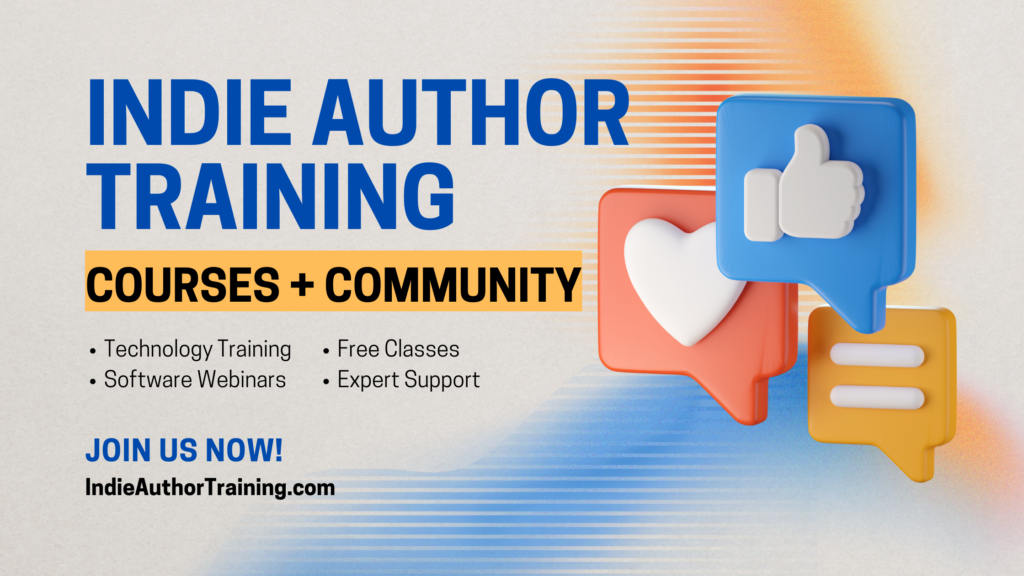Although we spend a lot of time talking about fiction—writing to market, craft books, whether you should plot or pants your novel, and more—there is a whole different genre of writing to be considered that can be just as profitable: nonfiction. Like fiction, nonfiction contains many genres that encompass a variety of topics and writing styles specific to those genres.
Nonfiction genres fit into one of four categories, according to Jericho Writers (https://jerichowriters.com): expository, narrative, persuasive, or descriptive. This article and many author craft books are expository nonfiction, written either by experts in the field or researchers who have spent time and effort studying the topic before writing. Narrative nonfiction is any true story about a person, place, or event, including biographies, memoirs, or books covering historic events. Persuasive nonfiction tries to convince you to be for or against an issue—though both sides should be researched and understood before writing starts, and citing references to give your argument credibility is also essential. Finally, descriptive nonfiction uses language that includes the five senses to convey the focus of the book.
Once you know the corresponding category for your nonfiction genre, it will be easier to determine the category, research, and structure you should follow in your own work.
How do you find an idea?
Idea generation in nonfiction can be as simple as seeing the same topic brought up or question asked repeatedly and knowing a book could bridge the gap in knowledge. It could stem from searching for books on a specific topic and discovering how limited resources are in that area. It could be that you read books on a topic and discover they’re out of date, with no one publishing works with the updated information. Are you an expert in your industry or field of work? Do you have a unique philosophy you want to share with others? Have you been part of a world event that you want to talk about? If you answer yes to any of these questions, then you could write about what you know.
If you aren’t an expert on a topic, you aren’t barred from writing about it, but note that it will take additional time to research the topic in depth and interview those who have expertise to ensure you are credible to your readers. Posts on writing blogs Self-Publisher’s Book Plan (https://www.selfpublishersbookplan.com) and JerryJenkins.com include ideas for how to approach the research process and where to find trustworthy information. It might also be beneficial to have an editor who knows about the topic to ensure accuracy in the final version.
Nonfiction books aren’t just limited to research topics, how-to guides, or photography. There are plenty of interesting memoirs, biographies, and autobiographies, written after listening to stories passed down by family or friends, after interviewing someone, or based on the author’s experiences.
Even when your work is limited by real life, the possibilities for what you write can be endless.
How do you know if the topic is something people want to read?
One tool that many authors already use to determine categories and keywords for their books can also help at the beginning of the writing process, writes Beth Brombosz on her craft blog, Blogger to Author. Publisher Rocket (https://publisherrocket.com) is a paid program created to help authors review competitors in similar genres to their books, but it can also help nonfiction authors determine potential audiences for their work before they’ve put pen to page.
By using the keyword search on Publisher Rocket and progressively narrowing search terms from an initial research idea, authors can not only learn how many people are searching for a book on a given topic but also how many competitors they have and what other books have been published already. You may find a topic similar to what you were planning to write has a decent number of people searching for it but very few competitors and decide to go with that angle instead of the one you originally planned.
Also keep in mind questions you see people asking about certain topics repeatedly on social media platforms or forums. If there aren’t already books on the topics they’re curious about, it may be a sign for you to consider writing it. Knowing there is a potential readership for your book can help direct your work, and you might convince those same people who are asking questions to preorder the book when it’s available.
How do you structure a nonfiction book?
Much like fiction books, nonfiction books need to have a good flow that leads from section to section and chapter to chapter. But in addition to flow, most nonfiction books have a slightly different structure than fiction books, according to CEM Writing Services (https://cemwritingservices.com). That structure can include:
- Cover
- Dedication
- Table of contents
- Foreword
- Introduction
- Body
- Epilogue or conclusion
- References
- Additional content
The dedication and foreword are optional but typically found in the genre. A foreword should be written by a respected colleague who is knowledgeable about the book’s topic. You can’t write your own, but though it is not required, including this can boost the credibility of your work to readers.
Alternatively, the introduction should be written by you and include an overview of everything the book covers, as well as why you wrote it. It should sell the book to readers, but it shouldn’t leave them with questions in the same way a fiction book’s blurb might. Many authors write the introduction after they’ve written the book itself for this reason.
The body of a nonfiction book can be broken down into chapters, parts and chapters, or another structure, depending on what you are writing. It may be difficult to decide how to structure your book at first; outlining your research and organizing it into logical groupings before you start should help you determine what is best.
Like with the foreword, including a references section is optional, in that some nonfiction books—memoirs, biographies, or some expert written books—will not need them. In most other cases, however, nonfiction books should include references for any outside resources, research, books, or interviews that you used during the writing process to add credibility and avoid accusations of plagiarism. Be sure to follow the Chicago Manual of Style for how to cite references.
Following the references section in your book, you may also choose to include additional content. As in fiction novels, this could be author notes, a call for newsletter sign-ups, a list of other books you’ve written, and any other back-of-the-book pages you typically create. Although it isn’t necessary to prepare these during the drafting process, it can be helpful to know ahead of time which pages you’d like to include so you can record ideas for your author’s note or acknowledgements page as you write.
What is the writing process like?
Except for memoirs, biographies, and autobiographies, nonfiction should be written with you, as the narrator, addressing the reader. As you would with fiction, pick the tone of voice you want for your book and keep it consistent. Nonfiction can have a fairly casual tone and still be informative, writes Boni Wagner-Stafford in a 2019 article for IngramSpark; you don’t have to write it like a college paper, unless the topic is targeting that audience.
Pro Tip: Maintaining your voice can be difficult if you start and stop writing, but an editor can help adjust your voice to be consistent down the road.
Even if you research your topic beforehand to help with writing, know that you may need to interrupt the drafting process multiple times to research further and prevent inaccuracies. This is especially true when writing a biography or ghost-writing a memoir for an individual. People’s memories aren’t always accurate, and making sure you have the correct spelling for names and locations or descriptions of where things were as you go helps ensure the accuracy of the product you’re creating.
It is important, too, to consider your audience and their level of knowledge on the topic you are writing. This will help guide you in what context you need to include as you write and the academic grade level you should write for.
Here are some other important things to remember, particularly when writing expository or persuasive nonfiction:
- Avoid abbreviations if possible. If you are going to use an abbreviation, spell it out the first time and put the abbreviation in parentheses afterward. Acronyms and abbreviations can change or be lost over time, and taking these extra steps ensures clarity for your reader.
- If necessary, provide a glossary of terms at the back of your book.
- Keep track of where you use reference materials and quotes so you can add them into the paperback version of your book on the appropriate pages, as well as in the bibliography of your book.
Is it possible to “pants” a nonfiction first draft?
Some authors feel it is a mistake to write a nonfiction book without an outline because it will take you longer to write it without set points to discuss, laid out in a specific order in which to proceed. Although it can take hours, or sometimes even days, to complete a nonfiction book outline, it may save you time when you write it and ensure you don’t forget certain concepts.
Of course, just like with fiction, as you write your nonfiction book, you will recognize parts you may have missed when creating your outline and be able to add to your book as you go. But an outline, even if it’s just an overview, will make it easier for you to write the book and keep things organized, according to Wagner-Stafford. If your book has references, knowing where those references will be added and where to include them in the bibliography will also be helpful. In some cases, your outline may even become your table of contents.
It isn’t impossible to “pants” a nonfiction book, but it might be easier to have your outline and research done ahead of time. There are a variety of ways to outline a nonfiction book and though some of it depends on what you are writing, the rest depends on how in-depth you like your outlines. Check out these sites that provide a variety of outlines to find the one that best works for you:






